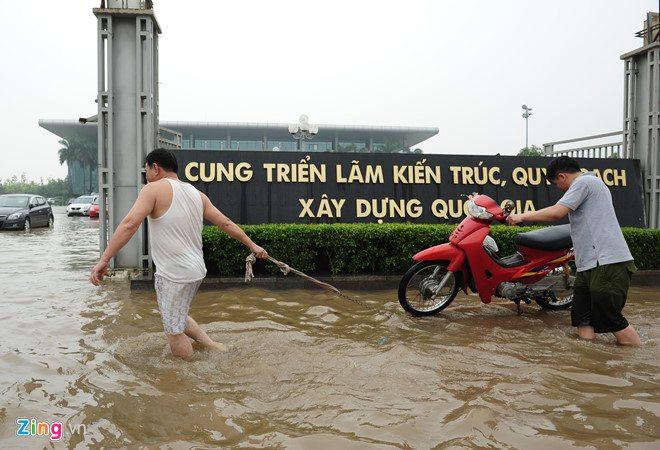The right to use land is a special type of property, playing an important role in political, economic, and social aspects. Based on this significant nature, civil and land laws have numerous regulations regarding the conditions for entities with land use rights to be allowed to transfer these rights, including through the form of gifting.

In practice, the implementation of regulations on donation contracts for land use rights still faces many issues and is not entirely suitable. Specifically:
1. Issues related to the conditions for donating land use rights
Firstly, the regulation requiring land use rights to have a Certificate of Land Use Rights before being allowed to engage in donation transactions is not suitable in the current actual conditions. The issuance of land use rights certificates to land users has not been fully completed, so a significant number of land users have not been issued certificates.
Currently, land laws allow entities with one of the types of documents regarding land use rights stipulated in Article 100 of the Land Law 2013 to be considered for the issuance of Certificates of Land Use Rights, house ownership, and other assets attached to the land. It can be seen that under this regulation, these entities are legally recognized as having valid land use rights, only having not been issued a certificate. However, these entities still cannot exercise the rights of land users. This regulation appears quite "bureaucratic" and turns land use rights transactions into a "bureaucratic" process (requiring legal documents issued by state authorities to perform transactions).
Before the Land Law 2013 came into effect, in reality, in many disputes, judges have been flexible in recognizing the legality of donation contracts for land use rights in these cases. Specifically: “In the case of donating land use rights where the donor does not have a certificate of land use rights but has one of the documents stipulated in Clause 1, Clause 2, and Clause 5 of Article 50 of the Land Law 2003, and if the content and form of the contract comply with legal regulations and the parties have transferred the donated asset, then the Court recognizes the contract.”. Up to now, even with the Land Law 2013 being enacted and in effect, this issue has not been entirely resolved.
Secondly, the regulation that the donated land use rights must be non-disputed land use rights has not been clearly guided, leading this regulation to be frequently used by parties or third parties to obstruct the performance of transactions.
Currently, the concept of land disputes is defined in Clause 24, Article 3 of the Land Law 2013 as “disputes over the rights and obligations of land users among two or more parties in land relations”. Based on this concept, it can be seen that land disputes cover a wide range, including many types of disputes such as disputes over ownership rights to land use rights, disputes over rights and obligations in contracts related to land use rights, disputes over rights and obligations of land users, disputes over assets attached to the land...
Due to the diversity and complexity of land disputes, not every land dispute is related to or directly affects the donor's rights over the land use rights, such as disputes over adjacent real estate, disputes over land use purposes... In practice, dispute resolution agencies or land management agencies will immediately suspend the donation of land use rights if there are any indications of disputes, regardless of the type of land dispute.
Besides, the lack of specific legal regulations on what constitutes disputed land results in land management agencies only basing their decisions on whether there is a dispute resolution request related to the land use rights being transacted. This creates opportunities for parties to exploit the dispute resolution process to obstruct the donor's rights. Therefore, it is necessary to have more specific regulations guiding state management agencies to distinguish types of land disputes and stages in disputes to respond appropriately, ensuring the rights of the parties involved.
Thirdly, donating household land use rights is often practically challenging. According to legal regulations, transactions involving household land use rights and ownership rights to property attached to the land can only be conducted when all members of the land-use household agree in writing, and this agreement must be notarized or certified as required.
Thus, it can be seen that exercising the rights of household owners regarding household land use rights is a complicated process prone to disputes among household members.
Initially, to proceed with the transaction, state management agencies must determine which household members have land use rights. Clause 29, Article 3 of the Land Law 2013 defines “Households using land are those who have marital, blood, or fostering relationships according to the law on marriage and family, living together, and sharing land use rights at the time of being allocated land by the state, leased land, recognized land use rights; receiving land use rights transfer”. It can be seen that this definition itself already raises conflicts over identifying members in the land-use household. Specifically: the first view suggests identifying household members based on the following factors:
- Members must have one of three relationships: marital, blood, and fostering with other members in the household;- Living together with other household members;- And, sharing common land use rights at the time of land allocation, lease, or recognition of land use rights; receiving land use rights.
The second view argues that household members are determined at the time the state allocates land, leases land, or recognizes land use rights; receives land use rights based on the following factors:
- Members must have one of three relationships: marital, blood, and fostering with other members in the household;- Living together with other household members;- And, recognized as having common land-use rights in the household.
It can be seen that different viewpoints lead to different methods of identifying household members, while legal regulations have not provided specific guidance on the basis for determining whether a household member shares common land use rights...
Essentially, the common ownership rights of the household are a historical existence in Vietnam due to agricultural development characteristics at the household scale in previous historical periods, leading to a complex land use form prone to disputes. Therefore, specific legal regulations are necessary to ensure the implemented and protected donation rights and other powers of households in land use.
2. Provisions on the form and procedures for establishing land use rights donation contracts
In practice, land use rights donations in society are manifested in various forms, not adhering to the legally required forms, nor complying with the prescribed procedures and processes.
This reality stems from the legal system of land laws in previous periods having significant shortcomings with misguided viewpoints and orientations (non-recognition of land value, prohibition of land transfer...). This has led to a lengthy period where people had to conduct underground transactions to meet their land use needs (including donating land use rights).
Besides, land use rights donations often occur among family members, relatives, and close contacts, influenced by numerous emotional and delicate factors, making clear distinctions difficult. As a result, most donation relationships fail to meet the legal requirements regarding forms and procedures.
However, these actual donation relationships cannot be immediately denied if there are form or procedural violations, as unforeseen consequences might impact the stability and legitimate rights of land users.
A typical issue is visible in disputes related to land use rights donation relationships between parents and their offspring when the offspring establish separate families. These disputes have existed for a long time in the court system and still lack specific legal grounds for resolution of such "sensitive" disputes. “When children establish families, parents allocate properties for their use, often verbally stating which part of the land or house is for the couple; issues on whether the properties are donated remain unresolved, posing difficulties. This question has persisted for decades”. This reality has long existed and has been studied by many scholars seeking solutions.
However, to date, there has not been an appropriate legal basis to resolve this issue. Any existing regulations only serve as guidelines and professional instructions for specific cases. For example, the High People's Court's summary report in 2005 concluded: “When parents have donated land and the child's couple has built a house on that land forming a separate premise, then the land is considered as the couple's common property. When a couple builds a house on parents' land without an explicit donation, when they divorce, the house is considered as a common property of the couple, but the land belongs to the parents”. It can be seen that, according to this viewpoint, courts, historically, when resolving and considering whether a land use rights donation relationship legally exists or not, would consider not only the form (verbal declaration or not) but also practical land use and exploitation by the donee.
In this sense, it is proposed that this orientation should be appropriately adjusted legally to address land use rights donation disputes with form and procedural violations that might arise in practice.
3. Regarding the effective date of land use rights donation contracts
The legal provision stipulating the effective date for land use rights donation transactions from the registration date remains ambiguous, unclear, and not practical, failing to ensure the parties' rights in transactions.
In disputes over land use rights donation contracts, parties often exploit unclear regulations on the effective date to argue in favor of their interests. According to established legal principles, the donation contract for land use rights takes effect upon registration.
However, how this registration time is understood - whether it is the time the parties complete the registration procedures for transferring rights or the time when one of the parties initiates the registration and submits the dossier to the competent authority...
Additionally, the law's requirement that the effective date of land use rights donation transactions only arises at the time of registration is not truly suitable, as parties might take advantage of the contract's lack of effectivity to unilaterally change decisions. Many countries around the world acknowledge the effective date from the moment of declaration of donation, or when the donee agrees to receive the asset, or when the donation contract is established and notarized.
Thus, viewing the effective date of a donation contract for land use rights only when registration is completed is inadequate. Essentially, after registration, the donation contract is fundamentally completed. If it only becomes effective at that point, addressing the rights and obligations of parties in the donation transaction would be without foundation and challenging to protect.
Source: Ministry of Justice
 Article table of contents
Article table of contents





.Medium.png)
.Medium.png)
.Medium.png)
.Medium.png)
